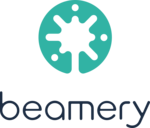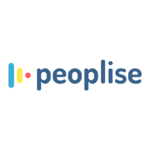Top Recruiting Softwares
Recruiting software streamlines the hiring process for organizations by managing recruitment activities efficiently. This type of software aids in sourcing, tracking, and evaluating job candidates throughout the hiring cycle. It reduces manual tasks by automating repetitive duties such as resume sorting and candidate communication. Recruiting software enhances collaboration among hiring teams by p... Read More
303 companies found
Product Description
COATS is a versatile software designed to streamline the management of staffing agencies. Its goal is to help recruitment firms handle everyday operations more efficiently. COATS offers a comprehensive set of tools that address both the front-end tasks of job placement and the back-end office functions like invoicing and payroll. This way, staffing agencies can focus more on growth and fostering c... Read More
Users
- • No Data
Industries
- • No Data
Market Segment
- • No Data
Product Description
Beamery is a talent operating system designed to simplify the way companies attract, engage, and retain top talent. Built with both recruiters and hiring managers in mind, Beamery offers a more intuitive approach to managing the talent lifecycle. From initial candidate discovery to fostering long-term employee relationships, this software aims to make every step of the hiring process more efficien... Read More
Users
- • No Data
Industries
- • No Data
Market Segment
- • No Data
Product Description
Peoplise is a user-friendly recruitment software designed to make hiring easier and more efficient for businesses of all sizes. Our platform simplifies the entire recruitment process, from finding the right candidates to tracking their progress, saving both time and effort for your HR team. Whether you are a small business or a large enterprise, Peoplise helps you manage job postings, applications... Read More
Users
- • No Data
Industries
- • No Data
Market Segment
- • No Data
Symphony Talent
Product Description
Symphony Talent is a software designed to make the hiring process smoother and more efficient for businesses of all sizes. Its platform brings together a suite of tools to help companies attract, engage, and hire top talent. The main idea is to take the complexities out of recruitment so that HR teams can focus on what matters most: finding the right fit for their organizations. One of the key fe... Read More
Users
- • No Data
Industries
- • No Data
Market Segment
- • No Data
PandoLogic
Product Description
PandoLogic is a dynamic software solution designed to simplify and optimize recruitment advertising for businesses of all sizes. If you're looking to streamline the way you attract candidates, PandoLogic could be the answer. With PandoLogic, you can automate the job advertising process, saving valuable time and effort. It intelligently distributes your job postings across a variety of platforms,... Read More
Users
- • No Data
Industries
- • No Data
Market Segment
- • No Data
Product Description
SeekOut is a software designed to make recruiting easier for businesses. It helps companies find the right talent by offering powerful tools to search and connect with potential candidates. Unlike traditional recruiting methods, SeekOut uses advanced technology to sift through vast amounts of data, making it simpler to locate individuals with specific skills and experience. One of the primary be... Read More
Users
- • No Data
Industries
- • No Data
Market Segment
- • No Data
Product Description
Element Software is designed to simplify your business operations with an easy-to-use platform. Whether you're a small business owner or part of a larger enterprise, Element offers tools to streamline your day-to-day tasks, improve communication, and manage projects more efficiently. Think of Element as your all-in-one workspace for team collaboration. Instead of juggling multiple apps for differ... Read More
Users
- • No Data
Industries
- • No Data
Market Segment
- • No Data
Product Description
CareerArc is a platform designed to make the job of finding and hiring great talent much simpler and more efficient. Focused on social recruiting, CareerArc helps businesses reach potential employees where they spend a significant amount of their time — social media. By leveraging the power of platforms like Facebook, Twitter, and LinkedIn, you can promote job openings directly to active and passi... Read More
Users
- • No Data
Industries
- • No Data
Market Segment
- • No Data
Product Description
When you're searching for the right software to help your business grow, it can be overwhelming to sift through endless options and features. Hired Software for SaaS Buyers aims to simplify that process. We provide a one-stop platform to connect you with the best software solutions tailored to your needs. Our mission is to make your software selection journey straightforward and efficient. By und... Read More
Users
- • No Data
Industries
- • No Data
Market Segment
- • No Data
Product Description
HireDesk is an intuitive software solution designed to streamline the hiring process for businesses of all sizes. Whether you're a small company looking to make its first few hires or a large corporation managing multiple job openings, our software provides the tools to get the job done efficiently and effectively. With HireDesk, you can easily post job openings to multiple job boards and social ... Read More
Users
- • No Data
Industries
- • No Data
Market Segment
- • No Data
What are the key features of recruiting software?
Recruiting software has become an indispensable tool in the talent acquisition landscape. Designed to streamline the hiring process, this software offers a variety of features that enhance the efficiency and effectiveness of recruitment activities.
Applicant Tracking System (ATS)
One of the core components of recruiting software, the Applicant Tracking System (ATS), manages the end-to-end recruitment process. It allows employers to collect, track, and manage candidate applications effortlessly. Through ATS, recruiters can organize resumes and necessary documents in a centralized database, making it easier to search and filter candidates based on specific criteria.
Automated Job Posting
Recruiting software simplifies job postings across multiple platforms. With automated job posting features, recruiters can publish vacancies on various job boards and social media channels simultaneously. This feature increases the reach of job ads, attracting a wider pool of candidates without spending extra time posting on each platform individually.
Resume Parsing
The resume parsing feature eliminates the need for manual data entry by automatically extracting relevant information from resumes. Recruiting software can parse resumes to identify key details such as contact information, work experience, education, and skills. This feature accelerates the evaluation process, allowing recruiters to focus on analyzing candidate suitability.
Customizable Workflows
Recruiting software often includes customizable workflows, allowing recruiters to tailor hiring processes according to their specific needs. Whether creating different stages for interviews, assessments, or approvals, customized workflows ensure that recruitment activities align with organizational practices.
Candidate Relationship Management (CRM)
Beyond tracking applications, recruiting software frequently includes Candidate Relationship Management features. These tools enable recruiters to maintain a talent pool, keeping track of passive candidates and managing relationships over time. This feature helps organizations build a strong candidate database for future hiring needs, nurturing relationships with potential candidates.
Interview Scheduling
Interview scheduling features streamline the process of setting up interviews. Recruiting software offers options for coordinating between candidates and panel members, often integrating with calendars to find mutually convenient times. Automated reminders and updates ensure all parties are informed, reducing the chances of missed appointments.
Reporting and Analytics
Data-driven insights from reporting and analytics are a crucial feature. Recruiting software provides reports on various metrics, such as time-to-hire, source effectiveness, and candidate drop-off rates. These analytics help organizations understand the effectiveness of their recruitment strategies and make informed decisions to optimize their hiring processes.
Mobile Accessibility
With mobile accessibility, recruiting software allows recruiters and candidates to engage with the hiring process anytime, anywhere. Mobile-friendly interfaces ensure that recruiters can manage tasks on-the-go, while candidates can apply for jobs and receive updates directly on their mobile devices.
Compliance Management
Adhering to legal requirements and industry standards is essential in recruitment. Recruiting software typically offers compliance management features to ensure that hiring practices align with applicable regulations, helping organizations avoid potential legal challenges.
Integration Capabilities
Recruiting software often provides integration capabilities with other HR tools and systems. Seamless integration ensures data consistency across different platforms, enhancing overall operational efficiency and reducing manual input or data duplication.
These features collectively enhance the recruitment process, providing tools to manage and optimize hiring activities seamlessly and efficiently.
## How does recruiting software improve the hiring process?
Recruiting software plays a critical role in streamlining and optimizing the hiring process. By leveraging technology, organizations can streamline tasks, improve candidate engagement, and enhance decision-making. Understanding the specific ways recruiting software impacts the hiring process can help businesses fully utilize these tools.
#### Enhanced Job Posting and Reach
Recruiting software allows for integrated job posting across multiple platforms. Broadening the reach of job advertisements ensures a larger pool of candidates. This integration saves time and effort by eliminating the need to manually post on each job board. Consequently, the right candidates are more likely to find and apply to open positions, improving the overall efficiency of the recruitment process.
#### Streamlined Application Tracking
With recruiting software, application tracking becomes more efficient. Automated tracking systems organize and manage applications in a central hub. This centralization simplifies the evaluation process, making it easier for hiring teams to filter and identify suitable candidates. Additionally, automated systems allow recruiters to track the status of applications in real-time, reducing response times and improving candidate experience.
#### Improved Candidate Screening
Advanced recruiting software often includes tools for initial candidate screening. These tools utilize algorithms and predefined criteria to filter applicants, highlighting those who best match the job requirements. This automation reduces manual effort and focuses the recruiter’s attention on top candidates, thus enhancing the screening process.
#### Effective Collaboration Tools
Recruiting software typically offers collaboration features that facilitate better communication and coordination among hiring team members. These features include shared candidate notes, interview scheduling, and task assignments. Effective collaboration ensures that the entire hiring team is aligned and informed, leading to more cohesive decision-making.
#### Enhanced Candidate Engagement
Automated communication tools within recruiting software maintain consistent engagement with candidates. Auto-responders, personalized emails, and text messages keep candidates informed about their application status. Engaging with candidates throughout the hiring process ensures a positive candidate experience, which reflects well on the organization’s brand.
#### Data-Driven Decision Making
One of the significant advantages of recruiting software is its data analytics capabilities. These systems collect and analyze data related to the hiring process, providing insights into recruitment metrics such as time-to-hire, cost-per-hire, and candidate sources. Data-driven decisions allow organizations to refine their recruitment strategies, optimizing both time and resources.
#### Decreased Time-to-Hire
Recruiting software helps reduce time-to-hire through automation of repetitive tasks and efficient workflow management. By streamlining recruitment stages, from posting to onboarding, organizations can fill vacancies more quickly. Reducing the time-to-hire not only alleviates workflow disruptions but also enhances the company’s ability to secure top talent before competitors.
#### Improved Compliance and Reporting
Compliance with hiring regulations is critical, and recruiting software assists in maintaining these standards. Many systems offer tools to ensure that the recruitment process follows legal and industry-standard practices. Additionally, automated reporting features provide documentation and audit trails, aiding organizations in compliance and reducing legal risks.
By integrating recruiting software into their processes, organizations can significantly enhance the overall efficiency and effectiveness of their hiring strategies, ultimately improving their ability to find and secure the best talent.
Can recruiting software help with candidate management?
Recruiting software plays a pivotal role in streamlining the process of hiring by offering robust tools and features for candidate management. One of the primary functions of recruiting software is to facilitate the efficient handling of potential candidates from the initial application stage to the final onboarding process.
Centralized Candidate Database
Recruiting software often provides a centralized database where all candidate information, including resumes, cover letters, and interview notes, are stored and easily accessible. This centralized approach eliminates the need for paper records and scattered spreadsheets, ensuring that every detail pertaining to a candidate is available to all members of the hiring team. This feature not only improves the organization but also allows for seamless communication and collaboration among recruiters.
Candidate Tracking
Tracking candidates throughout the recruitment process is essential for maintaining an organized hiring strategy. Recruiting software includes tools for applicant tracking, enabling recruiters to monitor the progress of candidates at different stages. Recruitment teams can easily track which candidates have been interviewed, which are awaiting feedback, and which need follow-up actions. This tracking capability ensures that no candidate falls through the cracks and the hiring process remains consistent and fair.
Enhanced Communication
Maintaining clear and prompt communication with candidates is crucial. Recruiting software often incorporates communication tools, such as automated email features, that allow recruiters to send targeted messages to groups of candidates or individual applicants. This ensures candidates are kept informed at each stage of their application process. By facilitating effective communication, recruiting software helps in building a positive candidate experience, which can improve the overall success rate of hiring efforts.
Resume Parsing and Searching
Recruiting software includes powerful resume parsing and searching functionalities that simplify candidate management. It can automatically extract relevant information from resumes, making it easier to search and filter candidates based on specific criteria. This feature is particularly beneficial when dealing with a large volume of applicants. By using keywords and other parameters, recruiters can identify the most qualified candidates quickly, saving time and effort in the screening process.
Interview Scheduling
Managing interview schedules can be a logistical challenge. Recruiting software aids candidate management by offering tools for scheduling interviews and sending reminders to both candidates and interviewers. This reduces the chances of missed interviews and ensures a smoother interview process. By automating scheduling tasks, the software frees up recruiters to focus on evaluating candidates.
Data-Driven Insights
Recruiting software provides analytics and reporting features that offer insights into the recruitment process. Recruiting teams can analyze data related to candidate sourcing, application rates, and the effectiveness of different recruitment channels. By gaining a better understanding of these metrics, businesses can refine their candidate management strategies for improved recruitment outcomes.
Recruiting software aids candidate management by offering a structured and automated approach to handling candidates, enhancing communication, and using data for continuous improvement. These elements work together to ensure that the recruitment process is efficient, effective, and a positive experience for candidates.
What is the role of AI in recruiting software?
Streamlining Candidate Sourcing
Recruiting software is increasingly integrating AI to optimize candidate sourcing processes. AI algorithms analyze extensive data sources, including resumes and social media profiles, to identify potential candidates. By matching job requirements with candidate skills, AI streamlines the process, ensuring that recruiters focus on more relevant applicants. This system enhances efficiency, allowing recruiters more time for personalized hiring processes.
Enhancing Candidate Screening
AI is profound in the candidate screening function of recruiting software. It automates the examination of resumes and application forms, sifting through vast amounts of data to highlight relevant information. Machine learning models assess qualifications, experience, and skills, ranking candidates based on pre-set criteria. This reduces human bias and increases speed, ensuring that only suitable candidates proceed in the hiring process.
Improving Interview Processes
Recruiting software employs AI to refine interview scheduling and conducting. Automated scheduling tools reduce the complexities of setting interview times across different time zones. Moreover, AI-driven interview platforms may use natural language processing (NLP) to conduct preliminary interviews, analyzing verbal cues and responses to evaluate candidate suitability. This innovation reduces manual intervention, streamlining the interview phase.
Facilitating Onboarding and Integration
AI in recruiting software aids in the onboarding phase by organizing relevant documentation and procedures. Automated systems guide new hires through necessary training modules, policies, and organizational structures, ensuring a fluid transition. This efficient handling of onboarding tasks facilitates the integration of new employees, enhancing both productivity and satisfaction.
Supporting Diversity and Inclusion
Recruiting software that incorporates AI contributes to more diverse and inclusive hiring processes. Algorithms designed to counteract biases help ensure fairness by focusing on skillsets and experience rather than demographic details. AI's objective analysis reduces unconscious biases, promoting an inclusive workplace, and aligning hiring practices with diversity initiatives.
Analyzing Recruitment Metrics
AI's ability to analyze and process recruitment data provides valuable insights. Recruiting software with AI capabilities tracks key metrics such as time-to-hire, cost-per-hire, and candidate conversion rates. The analysis of these metrics allows organizations to continually refine their recruitment strategies, optimizing them for better outcomes and resource utilization.
Predicting Hiring Trends
By evaluating historical data and current market trends, AI in recruiting software can predict future hiring needs. This predictive capability enables businesses to adjust their recruitment strategies proactively, aligning them with anticipated industry shifts. Workforce planning becomes more strategic with this foresight, ensuring that talent acquisition keeps pace with organizational growth.
Enhancing User Experience
Recruiting software enhanced with AI improves the experience for both recruiters and candidates. Automated chatbots provide real-time support, addressing queries and guiding users through the application process. This immediate assistance enhances engagement, making the recruitment journey smoother and more intuitive for all parties involved.
In summary, AI integration in recruiting software plays an essential role across various stages of the hiring process. From candidate sourcing to onboarding, AI enhances efficiency and effectiveness, improving recruitment outcomes while supporting diversity and user experience. The predictive and analytical capabilities of AI also provide strategic insights, setting the stage for data-driven decision-making in recruitment.
How can recruiting software integrate with other HR tools?
Recruiting software can significantly enhance HR processes by seamlessly integrating with various HR tools. This integration streamlines operations, reduces manual work, and ensures a smoother recruitment journey. The following points detail how recruiting software can be integrated effectively:
Integration with HR Management Systems (HRMS or HRIS)
Recruiting software often connects with Human Resource Management Systems (HRMS) or Human Resource Information Systems (HRIS) to facilitate the flow of data between systems. This integration allows for automatic syncing of candidate information with employee records once a candidate is hired. It ensures that the data is accurate and up-to-date, eliminating the need for manual entry and reducing errors.
Connection with Payroll Systems
Integrating recruiting software with payroll systems helps streamline the transition of a candidate to an employee. Once a candidate accepts an offer, their details, such as salary and tax information, can be automatically transferred to the payroll system. This integration minimizes the chances of discrepancies and ensures timely and accurate payroll processing.
Synchronization with Performance Management Tools
Recruiting software can interface with performance management tools to ensure that the skills and competencies of candidates are aligned with organizational goals. By integrating these systems, companies can leverage data collected during the recruitment process to identify the right fits for specific roles and track their performance post-hiring.
Collaboration with Onboarding Platforms
Onboarding is critical to integrating new hires into a company. Recruiting software can sync with onboarding platforms to automate documentation, training schedules, and introductory tasks. This integration aids in a smooth transition for the new hire, providing them with required resources and information promptly.
Communication with Employee Training Systems
Integrating recruiting software with employee training and learning management systems (LMS) ensures continuous development opportunities for new personnel. As candidates advance through the hiring process, details of their skills and potential training needs can be shared with the LMS to tailor development programs that will assist in their long-term success within the organization.
Coordination with Compliance Management Tools
Ensuring compliance with legal and company-specific requirements is crucial during recruitment. Integrating recruiting software with compliance management systems helps verify that all relevant checks, such as background and reference checks, are conducted appropriately. This integration supports adherence to labor laws and internal policies, safeguarding the organization against potential legal risks.
Interaction with Analytics and Reporting Tools
Business intelligence and analytics tools can also be integrated with recruiting software to enhance data-driven decision-making. Such integration aids in analyzing recruitment metrics, trends, and overall ROI. This data allows HR teams to refine their strategies and optimize recruitment efforts for better outcomes.
Interface with Employee Self-Service (ESS) Portals
Recruiting software can integrate with employee self-service portals to offer candidates greater control over their application data, interview schedules, and feedback. This interface facilitates better communication and engagement between recruiters and candidates, enhancing the candidate experience.
In conclusion, integrating recruiting software with other HR tools enhances data integrity, automates processes, and provides a holistic view of talent management throughout the employee lifecycle. These integrations enable HR departments to operate more efficiently and effectively, contributing to the broader strategic goals of the organization.
What benefits does recruiting software offer to small businesses?
Streamlined Hiring Process
Recruiting software offers small businesses a streamlined hiring process that reduces the time spent on recruitment tasks. By automating repetitive steps such as resume screening and scheduling interviews, the software allows small businesses to focus on building relationships with potential candidates. This efficiency not only saves time but also improves the quality of the hires, which is crucial for small businesses aiming for rapid growth and productivity.
Enhanced Candidate Experience
A positive candidate experience can significantly impact a small business's brand image. Recruiting software helps in maintaining timely communication with candidates, providing them with updates at each stage of the hiring process. It also offers candidates the convenience of self-scheduling interviews and completing assessments online. This level of engagement increases candidate satisfaction and reduces the likelihood of lost talent due to poor communication.
Centralized Candidate Management
Small businesses benefit from centralized candidate management, enabling them to keep track of all applicant data in one place. Recruiting software stores resumes, interview notes, and other relevant documents in an organized manner, making it easier to retrieve information when needed. This central repository allows hiring teams to collaborate effectively, share insights, and make informed decisions together.
Improved Diversity and Inclusion
Recruiting software often includes features that help small businesses improve diversity and inclusion in their hiring practices. With tools that offer anonymized candidate profiles and unbiased screening procedures, companies can prevent unconscious bias and promote a diverse workforce. This focus on diversity leads to a more innovative and inclusive workplace environment, which is beneficial for small businesses in a competitive market.
Data-Driven Decision Making
Recruiting software provides small businesses with analytics and reporting tools that facilitate data-driven decision-making. By evaluating key metrics such as time-to-fill, source of hire, and candidate conversion rates, companies can refine their recruitment strategies and allocate resources more effectively. This data-driven approach ensures that small businesses hire the right talent quickly and cost-effectively.
Cost Savings
For small businesses, managing recruitment costs is often a priority. Recruiting software reduces the burden of various recruitment expenses by eliminating the need for third-party recruiters and advertising. It also optimizes the use of internal resources, reducing the time employees spend on manual processes. This cost efficiency allows small businesses to invest their budget in other growth areas.
Compliance and Risk Management
Recruiting software assists small businesses in maintaining compliance with employment laws and regulations. By providing templates and guidelines, it ensures that job postings, interview questions, and employment offers adhere to legal standards. This risk management capability protects small businesses from potential legal issues, safeguarding their reputation and financial stability.
Scalability
As small businesses grow, their recruitment needs change. Recruiting software offers scalability, allowing businesses to adjust their processes and features as they expand. This flexibility ensures that the software can accommodate increased hiring demands without requiring a complete overhaul of the recruitment system. Hence, small businesses can focus on growth without worrying about outgrowing their recruitment technology.
In summary, recruiting software provides small businesses with streamlined processes, candidate-centric experiences, centralized management, diversity enhancement, data-driven insights, and scalability—all while ensuring compliance and cost-effective operations. These benefits collectively support small businesses in building a strong workforce, imperative for long-term success.
Is recruiting software cost-effective for large enterprises?
Recruiting software is a crucial component for large enterprises to streamline their hiring processes. The cost-effectiveness of such software can be significant for organizations that handle a high volume of applications and manage extensive recruitment campaigns. Large enterprises benefit from recruiting software in several ways, enhancing efficiency while minimizing costs.
Streamlining Recruitment Processes
Large enterprises often deal with thousands of applicants for various positions. Recruiting software simplifies application management through features like automated resume screening and applicant tracking. This automation reduces the need for extensive human resources dedicated solely to sorting through resumes and applications. By speeding up the recruitment process, companies save time and resources, making recruiting software a cost-effective solution.
Enhancing Collaboration and Communication
Recruiting software fosters collaboration between different departments involved in the hiring process. With centralized data storage, HR teams, hiring managers, and decision-makers can access candidate information easily. This streamlined communication reduces the chances of misinterpretation or delays, which can be costly. Enhanced collaboration within the team ensures that the recruitment process is more efficient and cost-effective.
Data-Driven Decision Making
Data analytics is a powerful feature of recruiting software, enabling large enterprises to make informed recruitment decisions. By analyzing recruitment metrics, companies can evaluate the effectiveness of their hiring strategies and make necessary adjustments. Reducing trial and error in recruitment processes avoids unnecessary costs and optimizes resource allocation, proving the cost-effectiveness of recruiting software.
Reducing Time-to-Hire
A swift recruitment process is vital in a competitive job market. Recruiting software significantly reduces time-to-hire by automating repetitive tasks and facilitating quick candidate evaluation. The faster a company can fill open positions, the less money they spend on overtime for existing employees or missing out on business opportunities. For large enterprises, a reduced time-to-hire indicates cost savings and improved operational efficiency.
Improving Candidate Experience
Recruiting software enhances the candidate experience by providing timely communication and feedback. Positive candidate experiences can lead to better employer branding, helping large enterprises attract top talent more efficiently. This reduces the spending on extensive marketing campaigns to attract candidates, showcasing the cost-effectiveness of investing in robust recruiting software.
Customization and Scalability
One of the major advantages of recruiting software for large enterprises is its ability to adapt and scale according to the organization’s needs. As businesses grow, they require flexible solutions that can scale with their size and complexity. Recruiting software offers customizable features to fit varied recruitment needs, ensuring enterprises only pay for what they use—making it a cost-effective investment.
Large enterprises managing complex recruitment processes find recruiting software a valuable asset that drives efficiency and reduces unnecessary costs. By leveraging its automation, analytics, and collaboration features, large organizations streamline their recruitment efforts, making recruiting software a cost-effective choice.









